Editor's note: The Entrepreneur of the Year (EOY) Awards is a program created by Ernst & Young to identify, salute and reward outstanding Chinese entrepreneurs who have made significant contributions to the economic growth and prosperity of China.
Ernst & Young announced the winners for 2009 on October 30, including those in consumer products, real estate, service, industry, technology and energy.
China Daily is the exclusive English-language media partner of this program. We are pleased to publish interviews with the 12 winners, as well as presenting their profiles:
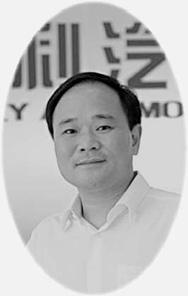
Li Shufu, chairman of Geely Automobile Holdings Ltd, Automotive Category Winner
Li Shufu founded Geely in 1986 as a maker of refrigerator parts, and subsequently moved into decorating materials, motorcycles and then cars. Following his huge success in the motorcycle business in the mid 1990s, Li's ambition was to break into the automotive sector. Li managed to start China's first privately owned automotive company in 1998, a sector that was then dominated by State-owned firms.
Geely is now China's seventh largest carmaker, manufacturing popular and budget cars. Li succeeded in the car industry despite the capital-intensive nature of the business, and without having to resort to importing technology and capital through joint ventures, as State-owned firms had done. Geely is now looking to shift up another gear to become a global carmaker. It has bought a stake in the company behind the iconic London taxi-cab, and it recently bought an Australian company that is one of the few independent automotive transmission makers in the world.
Li has donated over 1 billion yuan ($146.5 million), including money for the Sichuan earthquake relief effort, education for the poor, universities, research institutes and others. Li ranked 14th among the top philanthropists in China in 2009.
Q: Can you share with us the most valuable experience you gained in starting your business?
A: My most precious experience is that one should always stand on solid ground and go to the front line to learn what the truth is. You should also be good at drawing on the lessons of the past to make progress.
Q: Which achievement in Geely's history has made you feel most proud of your company?
A: There are many. First, I feel proud of our achievement in personnel training, which we have always given priority to. We have successfully attracted skilled staff from both at home and abroad to come to Geely and create a training system to help with further staff development.
Secondly, after we gathered this staff, we fostered a creative culture, which effectively stokes the passion of our people in terms of innovation.
Also, we regularly study market trends, as well as the changes taking place in our country and around the world, in order to adjust the future plans of our company. For example, we were initially in the refrigerator business, at a time when household appliance had just entered the Chinese market. Then we switched to building materials, as Chinese consumers became more well-off and many families began to spend money on their homes. After that, we started to make motorcycles and automobiles, gradually entering larger industries and moving on from smaller ones.
In May 2007, we implemented a strategic transformation, moving from price competition to competing in terms of brand, quality, technology, service and corporate responsibility. A fundamental change has taken place in the company's way of doing business. We want to lead all our management and staff to learn to jointly compete in a new way.
Wu Changjiang, president of NVC Lighting Holding Ltd. Industrial Products Category Winner
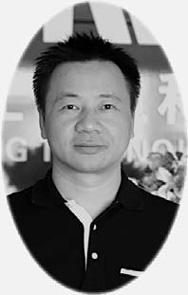
Wu Changjiang was the driving force behind NVC Lighting Holding, which is among China's largest and best-known lighting products providers. The company manufactures a variety of energy-saving lighting solutions for commercial, office, outdoor and residential use. The company has enjoyed impressive growth since it was formed in 1998, with a compound annual growth rate of 41 percent in term of sales.
The company manufactures and distributes through its retail channels. Its formidable sales network includes 35 centers, 1,500 dealers and 2,000 exclusive agents. Its brand has achieved a high level of recognition in China. NVC was ranked second in the "China Venture 50" in July 2009 by Zero2IPO, a data provider for the venture capital and private equity industries.
Today, NVC has four manufacturing bases with 9,000 employees and a production capacity of over 100 million units per month. In the community, Wu started a charity called Bright Road in June 2009. This has seen the company donate LED lamps to four schools in poverty-stricken areas in western China, enabling 1,600 students to have well-lit rooms in which to learn.
Q: What is the most precious experience you gained during the startup period?
A: First, I've learnt how to lead a team and get along with my dealers and customers. You need a team to accomplish anything and it's a challenge to stimulate your team to focus on a certain task. Secondly, I've learnt to think and solve problems in a systematic manner, either from an all-around perspective or from a specific angle.
Q: What are the events you feel most proud of?
A: Over the last few years, we have made several decisions that were doubted by outsiders at the time, but ultimately proved to be correct and were recognized as such by our competitors. When we first introduced the exclusive shop model into our lighting business, for instance, a lot of people thought it was untenable. Most stores were selling many different brands at that time, as the products made by just one company were very limited in range. We asked our dealers to sell only NVC products, now many companies have adopted this strategy.
Q: What is your view about the current financial crisis?
A: The financial crisis proved a wake-up call for Chinese businesses, especially for those in the manufacturing industry. They really need to change the old way of thinking and operating businesses. Economic crises are periodical, we have to learn lessons from them instead of focusing on the immediate problems. A number of export-oriented enterprises have no independent branding, no core technology and no stable sales channels. It's like putting your fate in other people's hands, which means you will be easily affected when foreign companies have problems.
Ding Shuipo, chairman and chief executive officer of Xtep International Holdings Ltd. Retail & Consumer Products Category Winner
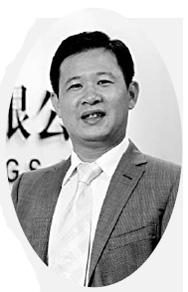
Ding Shuipo set up Xtep in 2002. Xtep has become a successful homegrown sportswear company by positioning itself as a hip and vibrant sportswear brand targeted at the youth market. Xtep currently has a 4.9 percent market share of China's branded sportswear market, making it one of the largest domestic sportswear brands in China.
Xtep has differentiated itself by creating a brand that combines its hip urban image with sporting excellence. The company has been successful at marketing its brand by working with young entertainers, including appointing pop singers as ambassadors for its products. It has also associated its brand with sporting excellence through a series of sports sponsorships.
The company now has multiple brands, and boasts a network of 5,500 authorized retail outlets nationwide, with a total of some 6,400 employees. It listed in Hong Kong in 2008. In 2008, its revenue was 2.8 billion yuan, a 110 percent increase from 2007. Ding is active in the community and his public roles include acting as a member of the 10th Quanzhou City Fujian Provincial Committee of the Chinese People's Political Consultative Conference.
Q: Can you share some insights that you have gained in operating a business?
A: I would like to attribute Xtep's success mostly to the opportunities brought about by the reform of China. Of course it is important for a company to seize those opportunities.
Throughout the 1980s, China was a seller's market and our company enjoyed rapid growth at that time. In the 1990s, the Chinese government encouraged the development of export-oriented businesses. We then took the opportunity to sell our products to more than 40 countries. After the millennium, with the rising living standards of Chinese people, we successfully switched back to the domestic market. Throughout the whole process, I am most proud of two achievements - creating our own brand and being listed on the Hong Kong bourse.
Q: What is your advice to those who want to start up their own businesses?
A: The economic competition is much fiercer now than before, which has brought greater challenges to young entrepreneurs. However, if an entrepreneur can work hard and focus whole-heartedly on certain undertakings, he or she will finally reach their goal.
Q: What do you do to ensure your company remains innovative?
A: Innovation is very important for a successful business. Xtep for example, was the first to use entertainment as a means of marketing in the sporting goods industry. Recently, we invited the winners from the "Happy Girls" show to be our image ambassadors.
Q: What are your hopes for your company?
A: We have always aimed to be the top fashion sports brand in the world, as well as a national brand that represents the Chinese sporting goods industry.
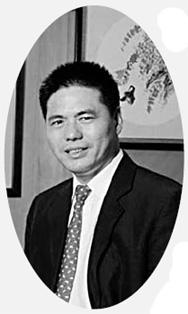
Jiang Xipei, board chairman and chief executive officer of Far East Holding Group Co Ltd. Industrial Products Category Winner
Jiang started Far East Holding in 1990. The company makes cables for use in the electric, infrastructure and grid transmission sectors. It has ranked as the No.1 cable manufacturer in China for the past 11 consecutive years, with annual sales of 7 billion yuan in 2008. In addition to diversifying into pharmaceuticals and real estate, he is also a successful venture capitalist, helping promising young local entrepreneurs list domestically and internationally.
Far East has been supporting the disabled community from the very outset, employing two disabled workers when the company launched. The company currently employs 1,500 disabled people, representing 27 percent of its total workforce. In 2007, he donated 83 million yuan to set up the Far East Charitable Foundation, an organization aiming to provide a special career-training fund for the disabled. The group publishes a Corporate Social Responsibility report, and he is also engaged with a number of other charities. He has won various awards for his work throughout China.
Jiang was a representative to the 16th CPC Congress of the National Congress in 2002. He is also the vice-chairman of Global Alliance of Small and Medium Enterprises.
Q: How do you define the entrepreneurial spirit?
A: For me, it means honesty, cooperation, devotion, responsibility and persistence.
Q: What is the most valuable experience you have gained whilst operating your business?
A: First, it is important to respect the rules. Also, a company should have a long-term plan and strategy, as well as a perfect management system and leading-edge technology. You also need a good team. A company can go much further if the management is able to oversee the situation and implement innovation.
Q: What has career success brought to you? What do you think one has to endure to be an outstanding entrepreneur?
A: Actually I don't think you need to have great dreams or ambitions at the very beginning, but once you start doing business, you will find that you need to do many things. You work to realize your own value as well as to fulfill your obligations to society. I think people should do things that will benefit others, the country and the world. I would like to make an effort to help people when I am still young and have the resources. Even though I have to pay a lot, I am still willing to do that.
Q: What are your future plans?
A: It's been almost 20 years since the establishment of the company and we have achieved a lot. Yet we are just starting to build a world-class business. We hope that, over the next 10 years, we can take the lead in the global electric wire and cable market and in the domestic medical industry. We want our company to contribute still more to the society and be a well-respected enterprise.
Vincent Lo, chairman of Shui On Group. Real Estate Category Winner
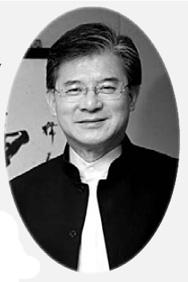
Vincent Lo comes from a real estate background and started out independently in 1971, borrowing HK$100,000 ($13,000) from this family to start Shui On, a property business, when he was just 23. His first big breakthrough came in his first two years in business when he beat the odds to win a government contract to build public housing in the northwestern outskirts of Hong Kong. From that point, Shui On continued building a reputation as an innovative property developer in Hong Kong and the Chinese mainland. He has two Hong Kong listed companies, Shui On Land Ltd and Shui On Construction and Materials Ltd.
Lo entered the Chinese property market early, in 1984, giving him an advantage over other developers. Key wins in China include the Xintiandi development in Shanghai, a modern landmark in Chinese property development. At Xintiandi, Lo gave an ageing residential area an entirely new lease of life by turning it into a modern multifunctional hub, combining commercial, retail, leisure and residential elements.
Lo continues to be invited by local governments to advise on their city redevelopment and regeneration projects.
Q: What is your view of the entrepreneurial spirit?
A: An entrepreneur should have vision, the ability to improvise and confidence in him or herself. He or she should also have a little inclination toward gambling in his blood.
Q: What was the most important to you when starting your own business?
A: The most important thing was to have confidence in yourself. Starting your own business has many difficulties, but you should persist and realize your own dream and vision.
Q: Can you share with us some of the most valuable experiences from operating your own business?
A: I don't agree with using family-style management to run a company, so I have built Shui On Land to be a professionally managed company, which I feel very satisfied about.
Q: What's the fundamental driving force behind the rapid growth of Shui On Land?
A: Our company spirit is in trying to do everything well and to do it whole-heartedly. I think that's an important way of ensuring our continued growth.
Q: What does your career success mean to you?
A: It provides me with great satisfaction, especially when I can realize some of my dreams - such as developing the Shanghai Xintiandi as a new landmark in the city.
Q: What does it cost to be successful?
A: The cost is that you have work for long hours with very little personal time. I don't have enough time to spend with my family.
Q: What are your expectations for the future of your company and for yourself?
A: I hope that the company will continue to grow and expand. I hope the company will do even better once I retire.
Q: What is your advice to young people who want to start their own businesses?
A: You must know yourself, trust yourself and persevere.
Clement Hui, chairman of Dah Chong Hong Holdings Ltd. Retail & Consumer Products Category Winner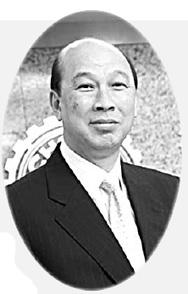
Clement Hui has been driving Dah Chong Hong's growth and direction over the past 40 years. His bold approach has helped him rise to the top of the company, which he joined in 1966 as a young management trainee.
His first major achievement was his success in introducing Isuzu trucks into Hong Kong. Hui has been instrumental in ensuring Isuzu has remained the market leader in trucks in Hong Kong for the past 20 years, consistently holding nearly 50 percent of the market.
DCH has grown to become a conglomerate with operations in motor vehicles, food and consumer products and logistics in Hong Kong, the Chinese mainland, Singapore and Japan. DCH motor dealerships include Audi, Bentley, Honda, Isuzu and Nissan. In the food sector, it distributes several well-known brands, including Pocari Sweat and Twinings. On the consumer goods front, it distributes Shiseido and Electrolux, among others. It also operates a retail chain selling frozen foods.
Hui was something of a pioneer in China, helping pave the way for sustained growth for DCH over the years. The company's turnover has increased more than 38 times from the 1980s to HK$19.6 billion in 2008. The company has been consistently recognized as a Caring Company by the Hong Kong Council of Social Services.
Q: What are the events in your company's history that you feel most proud of?
A: I believe that after Hong Kong's return to the Chinese mainland, Hong Kong businesses benefited from access to the open market on the Chinese mainland. Our business in Hong Kong was not all plain sailing though. We went through several difficulties, including the Asia financial crisis in 1997, the SARS epidemic in 2003 and the recent financial crisis. All of these hit Hong Kong entrepreneurs hard. Different companies had different ways to deal with the crisis. Some survived, some failed. We are lucky to have many experienced people in our company, who were able to adjust our strategy in line with changing circumstances and finally solve the problem - turning the crisis into an opportunity.
Q: What does career success mean to you?
A: In a commercial society, money is very important. Yet you will gain greater satisfaction, if you accept a challenge and accomplish it step by step, in line with your own strategy.
Q: What is the cost of being a successful entrepreneur?
A: I guess that most people will suffer from a lack of time, which will affect their family and health. In my opinion, if an entrepreneur cannot balance these things, then he or she is not truly a successful entrepreneur.
Q: What is your advice to the young people who want to start up their own businesses?
A: I suggest that young entrepreneurs discover both their strengths and weaknesses. Don't take more on yourself than you can manage. Also, they must be bighearted and willing to accept criticism, which will help them make progress. Additionally, they must be able to recruit talented people and organize a good team.
Wu Xiangdong, chairman of VATS Group. Retail & Consumer Products Category Winner
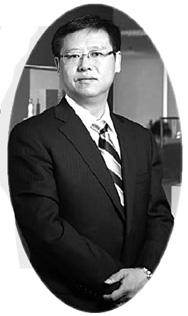
In 1996, Wu Xianglong set up Jinliufu Winery as a trader of liquor products. In 1999, Wu obtained the Hunan distribution rights to Chuanjiuwang, a traditional Chinese liquor owned by Wuliangye. Through his marketing efforts, it wasn't long before sales of Chuanjiuwang in Hunan ranked the highest among all regions in China.
Following the success with Chuanjiuwang, Wu registered Jinliufu as his first trademarked product. Wu outsourced the distilling to Wuliangye, enabling Wu's company to focus on the product marketing and branding aspects of the business.
Wu has continued to pursue this business model by acquiring other liquor brands in various regional markets in China and currently has a portfolio of more than 20 well-known domestic brands.
In 2006, Wu established VATS Group as a holding company for Jinliufu and other liquor products. In 2009, turnover reached 4 billion yuan.
Q: What do you think it costs to be a successful entrepreneur?
A: For me, running a business is like a marathon, you have to be prepared for a long-term race. As it will take a long time, you must have a strong body and tremendous vigor - and the capacity for participating in a continuous competition.
Q: Would you like to share some of your most useful experiences?
A: We always abide by being honest and showing integrity when doing business. Prestige and credibility is in the lifeblood of our company and is the ultimate guideline for every employee. We have thousands of clients and we take every complaint seriously. So far, all of our employees and clients endorse our excellent reputation.
Q: What is your view of the financial crisis? Do you think it has deeply influenced the operation of the business world?
A: Among business people, everyone has been affected more or less. The common thing brought about by the crisis is an understanding of the whole economy. The operation of the economy is just like planting crops - the harvest varies in different years. For entrepreneurs around the world, the financial crisis is a new experience.
Q: Have you seen signs of a new round of recovery? In which specific industry will we see recovery first?
A: According to the statistics of the wine industry, over the past few months, sales numbers have showed a year-on-year growth. You could say the wine industry is recovering. Regarding the whole country, I think the earliest recovery will take place in infrastructure as well as some companies that have transformed themselves. Growth is now visible.
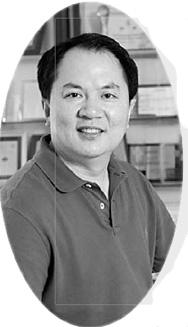
David Sun, chief executive officer of Home Inns & Hotels Management Inc. Services Category Winner
David Sun has been the influential leader of Home Inns since 2005, steering the business from being a privately owned company to become China's first overseas listed hotel chain. Under his leadership, Home Inns has overtaken its competitors to become the largest budget hotel chain in China, in terms of properties and rooms. It has grown from 68 hotels in 2005 to almost 550 hotels now. Sales have increased six times over the same period.
His success lies with his uncompromising belief in providing exactly what cost-conscious travelers want by focusing on the basics - providing a good clean room with easy booking and efficient service. He has ensured the hotel chain has adopted a consistent, standardized approach to each property, saying: "Wherever you go, you always feel at home."
Home Inns came 21st in the global Top 50 hotel rankings in 2008. In the aftermath of the Sichuan earthquake in 2008, he started a fundraising campaign to collect funds to rebuild school facilities in Sichuan.
Q: What is the most valuable experience you have had in terms of operating a business?
A: I think it's mainly about belief and persistence. When you start to do something, there are a lot of uncertainties ahead. You can move forward only if you firmly believe in what you are doing. You will also face many difficulties and your ability to solve these problems step by step is very important.
Q: What's your advice to those who decide to start up their own businesses?
A: Firstly, don't do things blindly. You should not start businesses just because someone has become a billionaire by doing something similar. You have to figure out why you want to start a business and set a clear goal. Also, you have to prepare for the worst and target your efforts in the best direction. Starting up a business is really hard work and requires tenacity. You have to believe in your direction and keep trying.
Q: What is your plan for the future development of your company?
A: We hope to have 1,000 hotels in more than 150 cities across China by 2011 and maybe 2,000 hotels further down the line. We also hope to get into the top 10 in the global hotel industry.
Aside from goals that can be measured by numbers, we also have objectives at the spiritual level. A company's market value can ultimately be translated into a social value. What we feel happy about now is that we can provide products that are really worth the money to ordinary Chinese people during their business trips or holidays. Our larger ambition is to be a leader in China's economy hotel sector and to offer convenient services to more ordinary people.
Luo Lin, chairman of the Board of Anton Oilfield Services Group. Emerging Entrepreneur Of The Year Category Winner
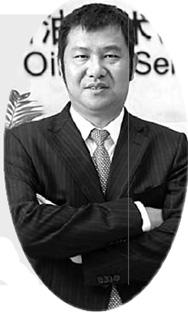
After gaining valuable experience in the oil industry at Sinopec and PetroChina, Luo Lin used his savings to start his own business in 1999. The company, Anton Oilfield Services, became the first privately-owned Chinese oilfield services company to be publicly traded, listing in Hong Kong in 2007.
Anton provides technical support and assistance to major Chinese oil companies. Services include the provision of drilling equipment, sand control services and well-cementing services.
The company's business covers most of China's oil producing areas, including Daqing, Sichuan, Dagang, Shengli and Nanyang. The company has been growing fast. Revenue has tripled between 2006 and 2008, and, sensing opportunities in the downturn, Anton bought two companies to expand and diversify the business. Looking beyond its own borders, it has set up an overseas entity in Dubai in order to explore new opportunities in developing countries.
Q: What does it cost to be a successful entrepreneur?
A: Not only an entrepreneur, but every successful person has to pay a lot for their achievements. For me, the cost of being an entrepreneur is that you cannot excel in other fields at the same time, such as being a politician, an artist or an educator. You have to give up many of your childhood dreams and commit yourself to being an entrepreneur. It is a shame, but it is a choice I had to make.
Q: In your opinion, how can we enhance support for entrepreneurs?
A: I think that entrepreneurs, especially Chinese entrepreneurs, are very willing to support the continued and accelerated process of China's reform and opening up program, which will provide a more favorable environment for their development. Direct support doesn't mean much. It is better to offer freedom to operate for entrepreneurs without interference and let them become genuine entrepreneurs, not politicians or whatever else.
Q: Would you like to share some of your most valuable experiences gained whilst starting your business?
A: Firstly, one should be fully prepared before starting a business. Before starting my own company, I worked in several State-owned enterprises, which helped me a lot. This work experience enabled me to know more about the oil industry and provided me with professional training.
A systematic stock of knowledge is very important and anyone who wants to start a business must be a good learner.
Another lesson I learnt is that you don't need to become friends with everyone, but you can make him or her trust in you. The interrelationship among staff is crucial to the operation of a company. I always stick to one idea - you can be successful by helping others to succeed.
Lu Wenbing, chief executive officer of Inner Mongolia Little Sheep Catering Chain Co. Services Category Winner
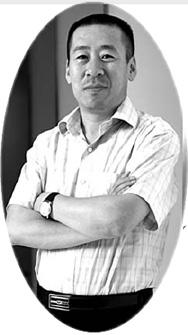
Lu Wenbing is one of the founding shareholders of Little Sheep and joined its management in 2004. Little Sheep operates a hot pot restaurant chain, comprising 127 self-owned restaurants and 248 franchise outlets as of 2008. Revenue increased by 35 percent on average from 2006 to 2008.
His key achievements include consolidating the franchise operations to strengthen the quality and service of the franchise outlets, unifying the brand image, improving the management and operational aspects of the business, and making the company more efficient and competitive. He has steered the company to become the first Chinese hot pot restaurant chain to list in Hong Kong, and has helped the company win a variety of international awards, including a number for franchising and brand development.
Little Sheep has contributed significantly to the economic development of Inner Mongolia and has improved the social standing of its agriculture and animal husbandry industries. As a result, demand for lamb has increased and prices have surged, helping improve agricultural livelihoods.
Q: Would you like to share some of the experiences you have gained whilst operating your business?
A: The most precious experience is the realization that you must continue to study, which is necessary for anyone who wants to be successful. As for running a company, I believe that firstly, the character of an entrepreneur decides the future of a company; secondly, the permanent priority for a company is to discover the needs of customers and to satisfy them; thirdly, a good team is a must for a successful company.
Q: What is the lesson you have learnt from the economic crisis? What kind of changes do you think the business world needs?
A: The crisis could have been avoided had the business world adhered to the following principles - avoid greed, enhance rationality and promote integrity.
Q: What are the events you feel most proud of in the history of your company?
A: There are two points I believe to be very important and worth thinking about.
First, in June 2006, we successfully secured overseas investment. Throughout the whole process, foreign investors investigated the financial and legal affairs of our company. It was like a huge exam for us. Finally we passed the exam, which has established a solid foundation for our future growth.
Another milestone was June 12, 2008, when our company was listed on the Hong Kong bourse. After that, we have established an international platform to attract funds as well as skilled personnel. It has also demonstrated our competitiveness in the catering industry.
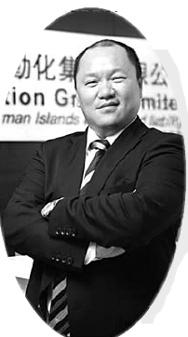
Richard Xuan, executive director and chairman of the China Automation Group Ltd. Technology Category Winner
Richard Xuan started the China Automation Group in 1996 with 200,000 yuan of his own savings. Listed in Hong Kong, the company is now a leading provider of automation safety and critical-control systems for the petrochemical and railway signaling industries on the Chinese mainland.
China Automation competes with Honeywell and General Electric in China. Its customers include nearly all the top petrochemical and railway companies in the country. It has 72 percent market share of automation safety systems in China's petrochemical industry. It has also diversified into providing safety systems for railway signaling, where it has a 30 percent market share in China.
China Automation has global ambitions. It has opened an office in Singapore to access the export market. In 2007 it bought a Texas-based turbo machinery company, and is now looking to open offices in Japan and Dubai. The company was added as a constituent stock in the MSCI World Small Cap Index in May 2009.
Q: Would you like to share some of your most valuable experiences in operating a business?
A: Doing business is a tough job. I have three points to make. First, you must have great ambitions. Our generation was taught to regard the prosperity of the world as our own responsibility. Secondly, you must have strong will power. Starting a business can be very arduous. It's just like fumbling in the dark. You need perseverance to carry on. Thirdly, responsibility is the ultimate key to success. It's not only an obligation to your own career; it's also the obligation to your clients and your employees, as well as to society.
Q: What do you think the government should do to strengthen support for entrepreneurs?
A: Chinese enterprises are often criticized for their weakness in research and development (R&D). I think it's important for the government to support companies in terms of investment in R&D.
Many domestic companies have to integrate and enlarge their scale in order to raise their standing in the international market. The Chinese government should support mergers and restructuring in certain industries in order to develop their competitiveness.
In addition, the government should maintain a supportive attitude to investment, both from at home and abroad. Investment is a crucial driving force for the economic growth of a developing country.
Q: What are your future plans?
A: We have become much busier since the company was listed in Hong Kong in 2007. Our sales volume quadrupled in three years. This rapid growth is just part of the development of China's automation industry. We will strive to move on towards our goal and try to take our place in the global automation market.
Jack Lau, chairman and chief executive officer of Perception Digital Group. Emerging Entrepreneur Of The Year Category Winner
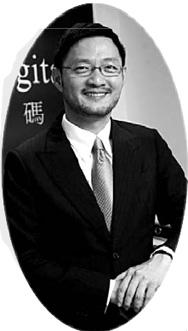
Dr. Jack Lau started Perception Digital (PD) with two other professors under the Hong Kong University of Science and Technology Entrepreneurship Program (the HKUST Program). PD provides firmware and turnkey solutions for consumer electronic devices.
PD is the largest spin-off from the HKUST Program in terms of the number of staff, which currently stands at 237. Since 2003, PD has sold over 4 million units of leading-edge consumer electronic devices utilizing PD technology, including MP3 players, smartphones, high memory USB thumb drives, digital TVs and wellness and fitness products. These products are sold to global electronics brands including Philips, RadioShack, Verbatim and Imation.
PD is strong on innovation and has filed 39 patents to date. It is one of the few Hong Kong based technology companies that licenses its patents for use by international brands.
Q: Can you share with us the most valuable experience you gained whilst starting your business?
A: During the whole process of starting our business, several students of mine - now employed as engineers by the company - and myself developed the technology, pioneered in our university lab, into mature products. We now also promote these products in the international markets. I think this is a very precious experience for me, as someone who used to be a teacher in the Hong Kong University of Science and Technology and who is now a businessman.
Q: What achievements in the history of the Perception Digital Group have made you feel most proud of your company?
A: The most commendable thing is that we have not only commercialized our research findings, but have also obtained a number of patents that are difficult to secure. Our patents have ensured our leading position, well ahead of our competitors. Unlike in universities, we have to create a competitive product rather than merely prove theories and publish papers. We succeeded after 10 year's effort and now our products are accepted by more and more international companies.
Q: What do you think are the costs of being a successful entrepreneur?
A: The most important thing about being a successful entrepreneur is not to ask what you will be paid, but to ask what you can undertake. I have learned one lesson over the past years - instead of asking what I will receive in monetary terms, I am more concerned about what I can contribute to my company.
Q: What is your advice to young people who want to start their own businesses?
A: You should really like what you are doing. Money shouldn't be the only motivation, otherwise you will soon lose interest. Secondly, focus on the things you like because it often takes a long time for a company to grow.







